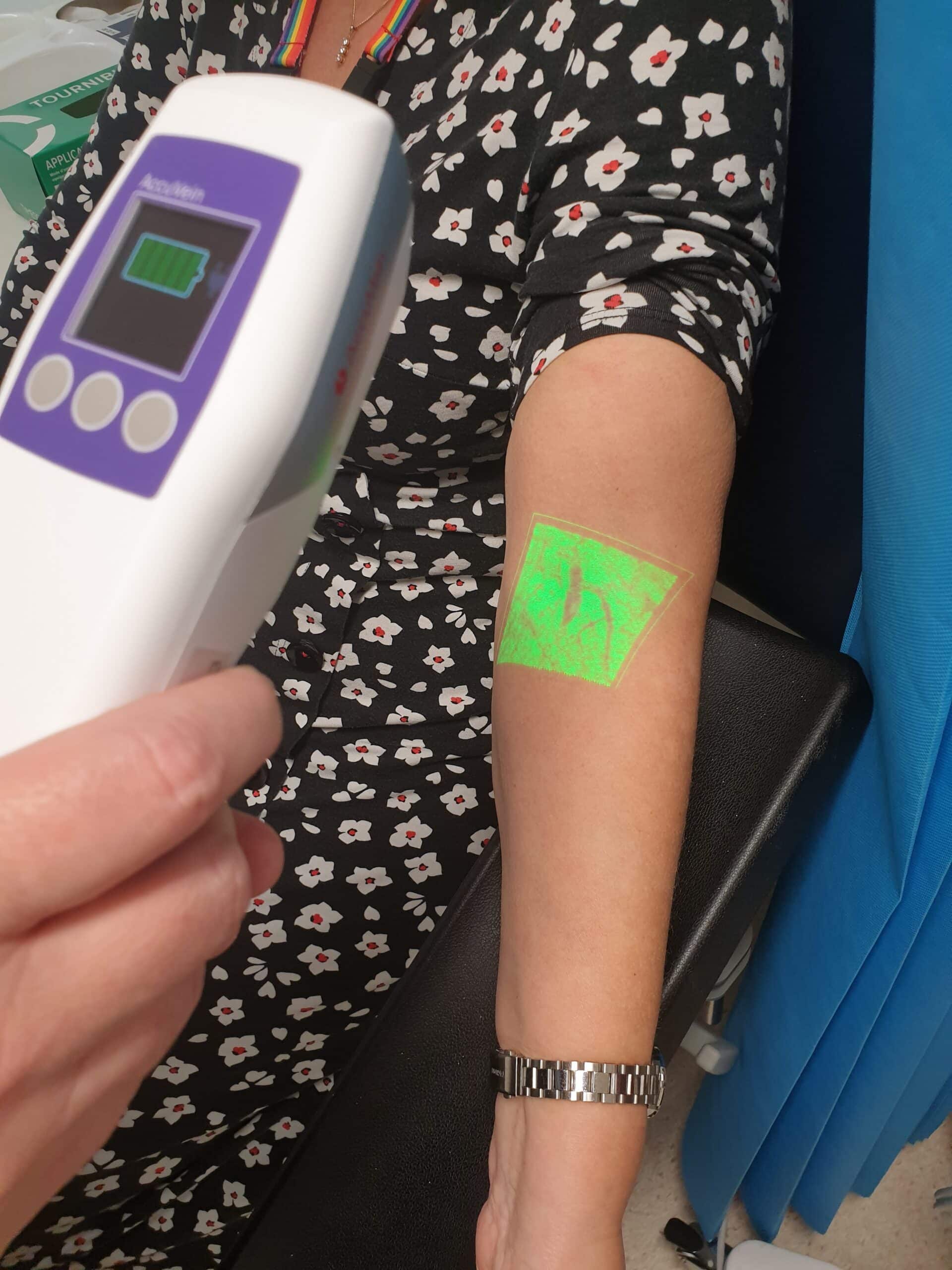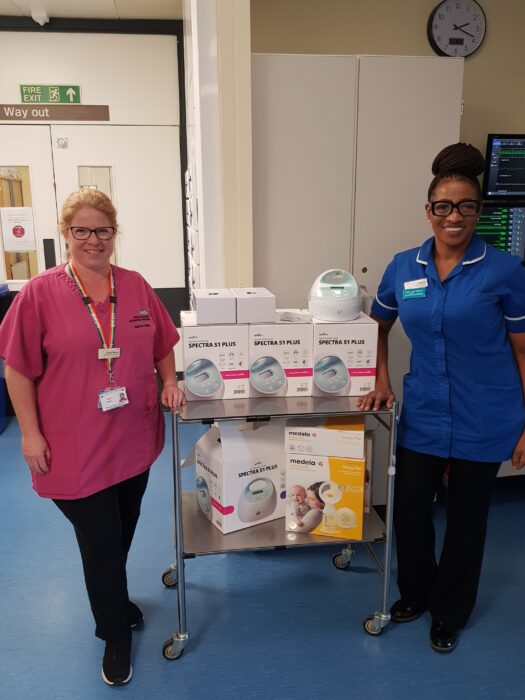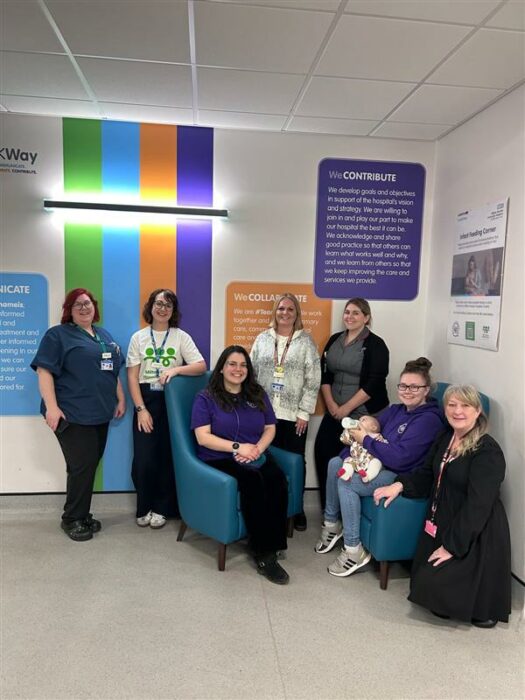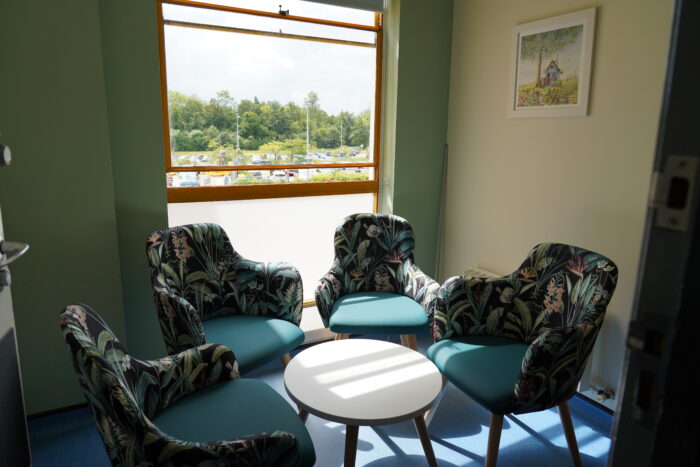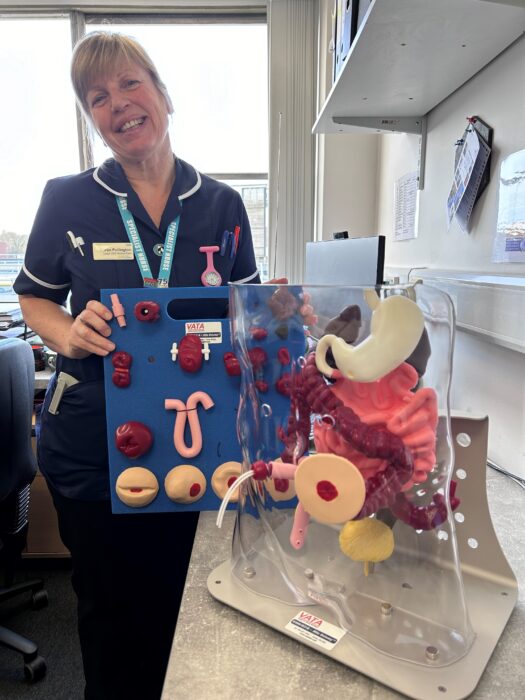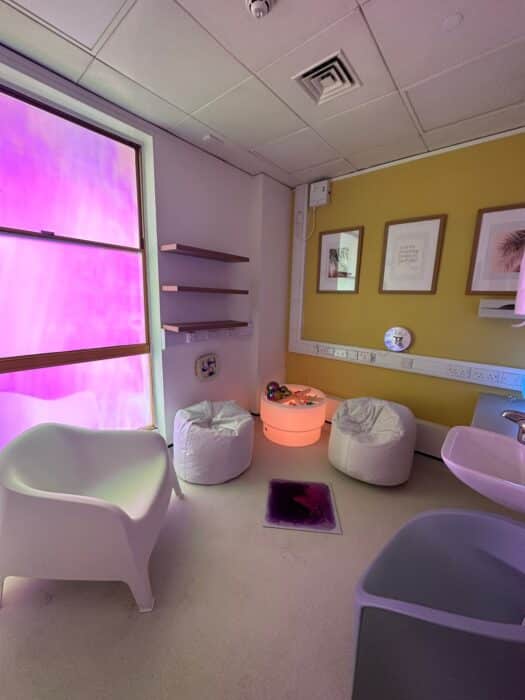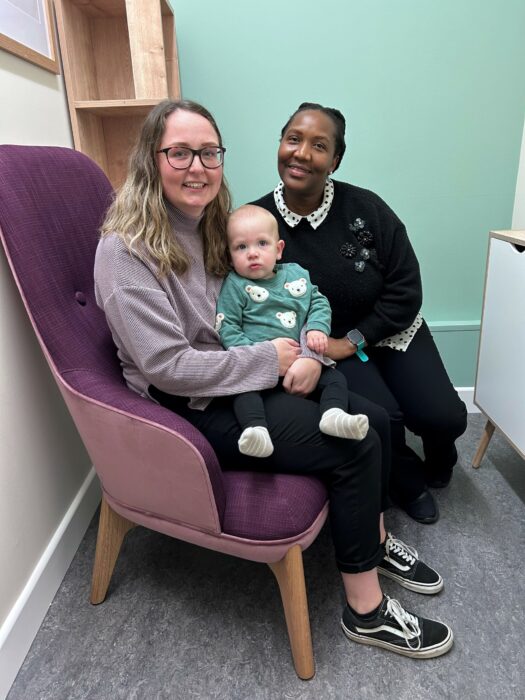Milton Keynes University Hospital cares for around 790 people per year at the HIV clinic.
At each visit, almost all patients have a blood test. It can be quite difficult for staff to find a person’s veins – and after involving other members of the team, the patient may then need to accompanied to the phlebotomy department. It’s time consuming and frustrating and uncomfortable for the patient – and also takes nurses away from the clinic, which impacts on patient experience and waiting times.
The patients who are difficult to bleed are often apprehensive coming to clinic as they know that their clinic visit may be longer than planned and potentially uncomfortable. The vein finder enables staff to identify possible veins, reducing the number of venepuncture attempts. It also provides comfort and reassurance to patients.
Moreover, funding the vein finder also helps to ensure the smooth running of clinic, reducing the time spent on trying to obtain blood.
BBV (Blood-Borne Virus) Nurse Fiona Gidley says: “When a person is newly diagnosed with HIV we take numerous blood samples, often 10+ vials of blood at a time. Once a patient is stable on treatment this reduces to approximately six vials of blood – but it’s still a lot. Patients stable on treatment attend clinic every six months. Being diagnosed with HIV is distressing and for those patients who are difficult to bleed there is additional distress caused when venepuncture fails. This can cause anxiety about coming to the clinic and for some may affect engagement with their care. We know the vein finder will help with this and ensure our patients have a much smoother and better experience.”
